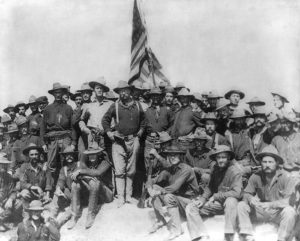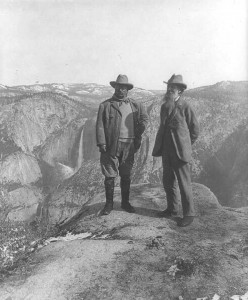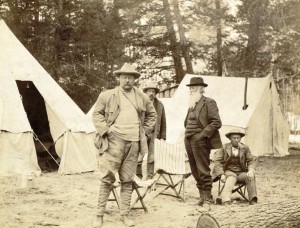Theodore Roosevelt held an important position–assistant secretary of the Navy–before the Spanish-American War, but his dashing exploits with the Rough Riders gave him an aura of adventure and excitement which no government position could impart (see last two posts). His citation for the Medal of Honor encapsulates the drama associated with his exploits: “
After the war was over, Roosevelt accepted the Republican candidacy for governor of New York. He won the office, and served its two-year term before accepting the vice-presidential nomination. He became president upon the death of William McKinley, and then served another four-year term after winning the 1904 election. In 1906, two years into his term of office, Roosevelt was awarded the Nobel Peace Prize for his work surrounding the Treaty of Portsmouth, which ended the Russo-Japanese War. Roosevelt was a passionate conservationist; during his presidency, he created the U.S. Forest Service and established 51 Federal Bird Reservations, four National Game Preserves, 150 National Forests, and five National Parks.
______________________________________________________________________________________


